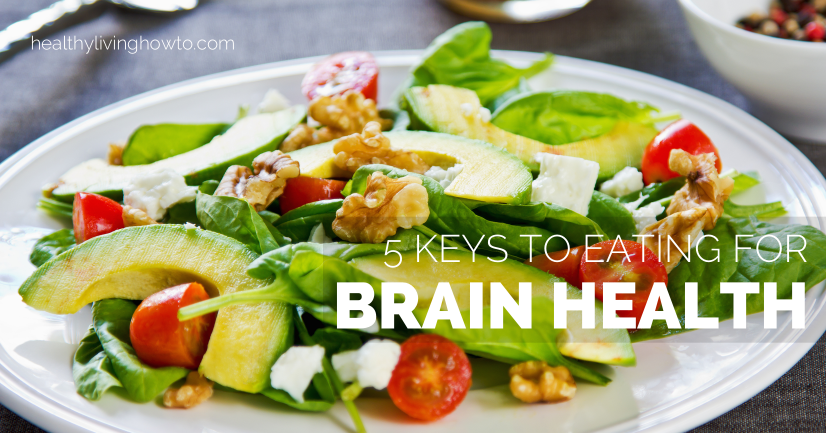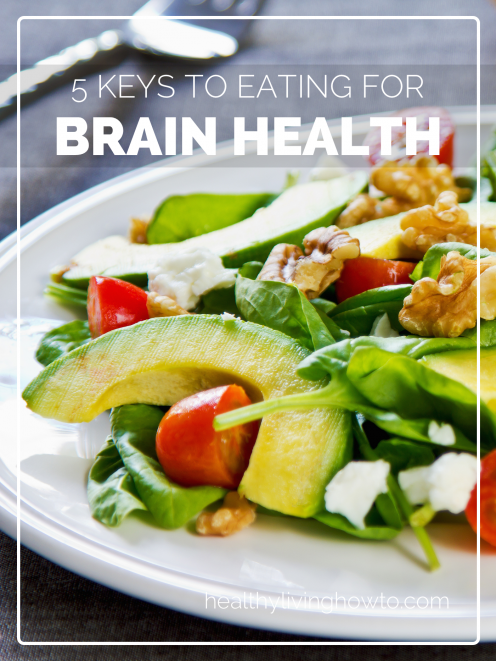Although many people may see the value in the grain- and gluten-free diet proposed by Grain Brain, getting them to take the final step, to actually make a nutritional change in their life, can often prove difficult. That’s understandable, because the first few days and weeks of making any lifestyle change are challenging. In this case, those who have trouble cite an inability to find gluten-free recipes, uncertainty over conflicting gluten-free food lists, reliance on dining out, or any other of a multitude of issues. So, I decided to write this blog post.
5 Keys to Eating for Better Brain Health
Eating to prevent brain disease and Alzheimer’s is, of course, my goal for all of us, but the below tips expand well beyond my objectives and speak to overall ways we can improve our diet.
1. Set aside cook time.
What ruins many grain- and gluten-free diets is the on-the-go moment, when it’s easier to reach for a cereal, a granola bar, or a PB&J sandwich, instead of a hard-boiled egg, vegetables & hummus, or other Grain Brain-friendly snack. When we’re in a rush, we have little to no time to prepare a meal, and it’s often those grain-based foodstuffs that are easily accessible and available as we’re walking out the door. How can we prevent this? Set aside a few hours on Saturday or Sunday and use that time to cook all your meals and snacks for the week. Grill seven chicken breasts, hard-boil 12 eggs, sauté a few servings of vegetables, or whatever else your stomach desires. If you do this, you’ll have all of your meals and snacks prepared for the week, not only saving you time (consider you only have to clean up once!), but also saving you from making poor dietary choices.
![Eating for Brain Health | healthylivinghowto.com Eating for Brain Health | healthylivinghowto.com]() 2. If it can go bad, it’s good for you. If it stays good, it’s bad for you.
2. If it can go bad, it’s good for you. If it stays good, it’s bad for you.
This is one of my favorite sayings about the food we eat. I think we all have seen the famous image of the fourteen year-old McDonald’s meal that hadn’t aged a day. Upon seeing that, I think we all intuitively know that there’s something wrong with food that doesn’t “expire.” When at the supermarket, remember this adage when making the choices of what to stock your kitchen with.
3. The Anti-Alzheimer’s Trio.
It’s become one of my staples of conversation, and it should become one of the staples of your diet. When it comes to eating “memory food” there is no better trio of items to fight Alzheimer’s and dementia than grass-fed beef, avocados, and coconut oil. This group of high-fat, brain-smart foods are a staple of the Grain Brain diet, and should work their way into your weekly meal plan as well.
4. It’s all about a cup of joe.
I’m a big fan of coffee, and super thankful that it’s not only savory, but brain-healthy as well. Not only does coffee activate our Nrf2 pathways, helping to fight off oxidative stress and protect against neurodegenerative diseases, but recent studies have found that high levels of coffee consumption can be associated with up to a 65% reduction in risk for dementia. Drink up!
5. Find your omega-3s.
The body doesn’t naturally produce fatty acids, so finding ways to introduce omega-3s into your diet, a brain and heart-healthy fatty acid, is essential. If you eat meat, fatty fish are a rich source of omega-3s. For those of you who don’t eat meat, olive oil, flaxseed oil and walnut oil are all rich in omega-3s. Adding an omega-3 supplement is always an option as well.
5 Keys to Eating for Better Brain Health is written by David Perlmutter, MD, FACN, ABIHM a Board-Certified Neurologist and Fellow of the American College of Nutrition. For more information, order your copy of Grain Brain today and join Dr. Perlmutter’s email list.
Also Read: Seven Super Supplements for Your Brain

